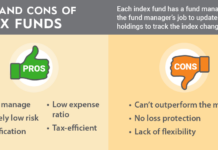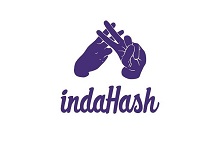While it might be a good idea to have some debts, repaying some personal debts might not be a smooth-sailing adventure. You might find yourself out of a job with lower pay or bedridden with no source of income. For anyone in such a situation, debt settlement could be an excellent avenue to get out of personal debt.
Debt settlement, also debt resolution or debt reduction, is the process of negotiation for partial debt forgiveness with our creditor. The negotiation process can be intimidating; that’s why debt settlement companies negotiate on behalf of debtors. But that service is not free and comes with a pack of disadvantages.
Daunting as the debt settlement process might be, you can always do it yourself, especially when you know the process’s ins and outs. Here is a guide for debt settlement negotiation that can help you go through the process like a pro:
Understand Your Situation
Credit companies are in the business of making money. If there’s a chance of recovering some of their money and not lose all of it, the debtor might consider settling. By doing this, the creditor avoids charging the whole debt to their income statement.
But that does not mean it is going to be an easy negotiation. For starters, the credit company needs to believe that you’re in a difficult situation and cannot afford to repay the whole debt. For example, if your credit card company runs your statement from the previous months and finds you’ve been enjoying the best of life on designer clothes and expensive getaways, the probability of getting that settlement could be nil.
But, if you have been keeping up with minimum payments or even paying more than the minimum, your creditor might consider you as someone who wants to get out of debt.
Know Your Options
Before starting the negotiation with your creditor, it’s important to know our options. When credit companies decide to settle, there are probably three settlement options on the table. Whatever option your creditor offers you, it’s good to be prepared.
- Workout agreement – in a workout agreement, your creditor agrees to renegotiate the terms of your current credit terms. The lender might agree to lower your interest rate, your minimum repayment amount, or remove late payment fees.
- Hardship agreement – also referred to as a forbearance program. Not all lenders offer this option, but it’s advisable to confirm with your lender, especially in sudden job loss or illness. Your creditor might agree to suspend your minimum repayments with no penalties for a specified period in a hardship agreement. You might also stand a chance of negotiating new terms, like lower minimum repayment amount, fees, and interest.
- Lumpsum payment agreement – this option allows you to deal with the lender to reduce your total debt in exchange for a lumpsum payment. This could include waiving any penalties, interest, and charges in exchange for a full principal amount repayment. If you’ve no money to pay the debt in a lump sum, this option will not work, but you can start saving and consider the option when you’ve enough funds.
Start the Process
Once you are aware of the options available, you can call your lender to start the process. You might not get the “yes, we can settle” answer immediately, but it’s good to keep pushing. If possible, try a face to face meeting with the lenders.
Ensure you have all the details of your credit in hand when starting the process, like the debt amount, interest amount, among other details regarding your account.
Explain your situation and why you want to settle. If filing for bankruptcy is part of your plan, let your lender know.
If your lender agrees to settle, ensure you have it in writing for future reference.
Debt Settlement Disadvantages
Debt settlement is one of the best ways to get out of debt, but it comes with its disadvantages. First, you risk hurting your credit scores. The lender might close your credit account, and you cannot access any credit, which lowers the available credit and increases the credit utilization ratio.
Second, if you settle and your credit report reads “charged-off” or “settled,” this could stay in your record for years. While it hurts your credit score, it might also be a red flag to future lenders, leading to bad credit terms. Also, forgiven debt might be considered as income by your revenue authority, hence taxable.
If you are drowning in debts, debt settlement might be one of the avenues to explore and get out of debt. There are debt settlement companies that negotiate for a fee, but a DIY option is also available. Once you’re okay with the repercussions of debt settlement, call your lender and start the negotiation process. If you are not okay, or the lender does not agree to any settlement option, explore other ways to get out of debt, like debt consolidation or filing for bankruptcy.











